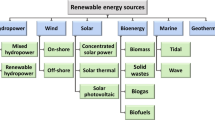Abstract
This paper investigates properties of an environmental policy based on the concept of a Lindahl equilibrium. Such a policy results in a system of “effluent” charges, if the economy is composed of homogeneous jurisdictions, each inhabited by a continuum of households. The supply of the environmental commodities in the jurisdictions generates spillovers, and consumption of the environmental commodities is subject to congestion. In such an economy, the set of equal treatment Lindahl equilibria coincides with the core, if congestion effects exhibit “constant returns to group size” locally in each jurisdiction. This is insofar important, since the federal government typically has the possibility to modify spillover effects and congestion effects by appropriate environmental regulations. Thus, there are policy implications which go beyond the recommendation of environmental policy instruments, and which also affect the design of an economically sound system of effluent charges.
Similar content being viewed by others
References
R. Aumann, Markets with a continuum of traders, Econometrica 32(1964)39–50.
W. Baumol and W. Oates,The Theory of Environmental Policy (Cambridge University Press, Cambridge, 1988).
T.E. Borcherding and R.T. Deacon, The demand for the services of nonfederal governments, Amer. Econ. Rev. 62(1972)891–901.
J.K. Brueckner, Congested public goods: The case of fire protection, J. Public Econ. 15(1981)45–58.
P. Champsaur, How to share the cost of public good?, Int. J. Game Theory 4(1975)113–129.
B. Ellickson, A generalization of the pure theory of public goods, Amer. Econ. Rev. 63(1973)417–432.
J. Feinstein, Public-good provision and political stability in Europe, AEA Papers Proc. 82(1991)323–329.
D. Foley, Lindahl's solution and the core of an economy with public goods, Econometrica 38(1970)66–72.
W. Hildenbrand, The core of an economy with a measure space of economic agents, Rev. Econ. Studies 35(1968)443–452.
W. Hildenbrand and A. Kirman,Introduction to Equilibrium Analysis (North-Holland, Amsterdam, 1976).
M. Kaneko, Examples that Lindahl equilibria may not belong to the core, Discussion Paper, Institute of Socio-Economic Planning, University of Tsukuba, Japan (1976).
M. Kurz, Game theory and public economics, in:Handbook of Game Theory with Economic Applications, Vol. 2, ed. R. Aumann and S. Hart (1994).
J. Milleron, Theory of value with public goods: A survey article, J. Econ. Theory 5(1972)419–477.
T. Muench, the core and the Lindahl equilibrium of an economy with a public good, J. Econ. Theory 4(1972)241–255.
W.H. Oakland, Congestion, public goods and welfare, J. Public Econ. 1(1972)339–357.
M. Pauly, Optimality, “public” goods, and local government: A general theoretical analysis, J. Political Econ. 78(1970)572–585.
D. Roberts, A note on returns to group size and the core with public goods, J. Econ. Theory 9(1974)350–356.
V. Vasil'ev, S. Weber and H. Wiesmeth, Core equivalence with congested public goods, Econ. Theory (1994), to appear.
S. Weber and H. Wiesmeth, On Tiebout and Lindahl equilibria in an economy with congested public goods, Discussion Paper, Technical University of Dresden (1993).
A. Williams, The optimal provision of public goods in a system of local government, J. Political Econ. 74(1966)18–33.
Author information
Authors and Affiliations
Rights and permissions
About this article
Cite this article
Wiesmeth, H. The charges approach to the environmental policy in an economy with homogeneous jurisdictions. Ann Oper Res 54, 79–96 (1994). https://doi.org/10.1007/BF02031728
Issue Date:
DOI: https://doi.org/10.1007/BF02031728




